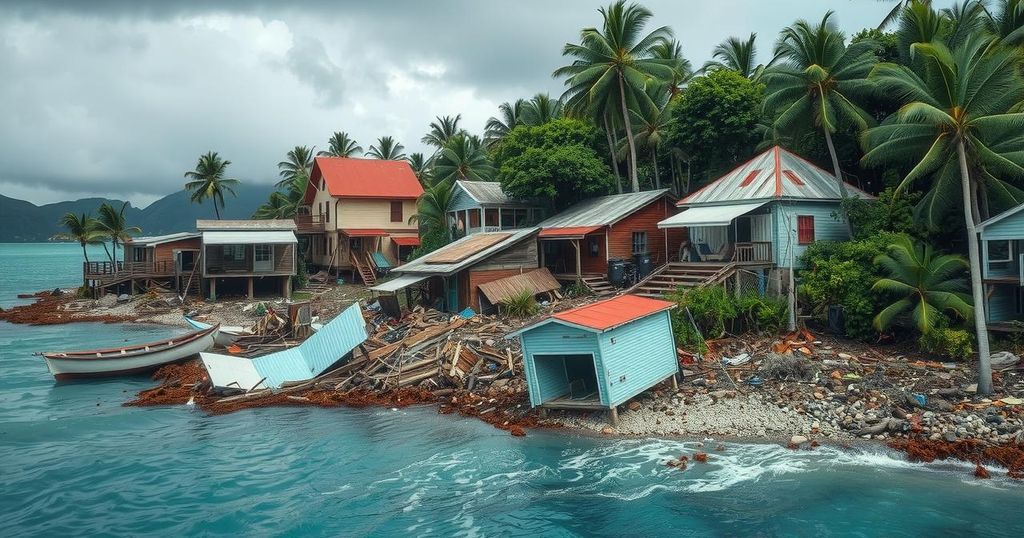Tragic Impact of Tropical Cyclone Chido on Mayotte’s Vulnerable Population

Tropical Cyclone Chido has ravaged Mayotte, leading to significant destruction and fears of hundreds of casualties. The storm, peaking at Category 4 intensity, caused extensive harm to infrastructure and local communities, particularly those in poverty. Resilience efforts are challenged by logistical obstacles and cultural practices that complicate death toll assessments, highlighting the urgent need for disaster preparedness and support.
The recent devastation caused by Tropical Cyclone Chido in Mayotte has raised immense concerns, as rescue operations are already hindered by infrastructural damage and rising casualty figures. Predicted fatalities could potentially surge into the hundreds, according to officials. This storm, the most powerful recorded in Mayotte, exhibited winds exceeding 155 mph and left a trail of destruction, particularly in impoverished neighborhoods. The overwhelmed local infrastructure, including the hospital, has severely hampered rescue and recovery efforts, intensifying the perilous situation faced by the residents of the island. With power outages and communication breakdowns complicating the post-cyclone assessment, numerous individuals are reported missing or unaccounted for.
As France grapples with this humanitarian crisis, immediate aid is being organized, albeit amid substantial logistical obstacles. Assessments indicate that the cyclone’s impact has particularly devastated slum areas, with reports of entire communities being displaced and infrastructures being obliterated. Local leaders and government officials have voiced their fears of further losses as the toll may include individuals who were not able to seek formal medical assistance due to the rapid burial traditions rooted in local culture.
The recent cyclone also underscores broader climate change trends, exacerbating severe weather patterns that threaten less resilient communities in the face of natural disasters. Housing insecurity, coupled with limited evacuation resources on the small island, has left the population exceptionally vulnerable, raising critical questions regarding disaster preparedness and resource allocation in regions prone to extreme weather events.
Mayotte, a French territory located northeast of Madagascar, is particularly susceptible to tropical cyclones due to its geographical position in the southwestern Indian Ocean. The region experiences a seasonal cycle of cyclones typically from November through April. Climate studies indicate a correlation between rising sea temperatures and increased cyclone intensity, suggesting that future storms may continue to pose significant threats to coastal communities. Mayotte is home to a large population living below the poverty line, including many undocumented migrants, exacerbating their vulnerability to extreme weather scenarios while placing additional stress on the island’s already strained infrastructures.
The aftermath of Tropical Cyclone Chido starkly illustrates the urgent need for improved disaster readiness and support for vulnerable populations in Mayotte. As the situation remains dire, local and national authorities must mobilize resources effectively to address the immediate needs for recovery and facilitate aid to those devastated by the cyclone. The broader picture reflects an increasing risk faced by regions susceptible to climate change, fostering a need for enhanced preparedness strategies for future natural disasters.
Original Source: www.spokesman.com







